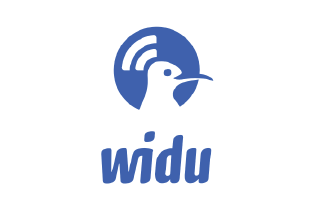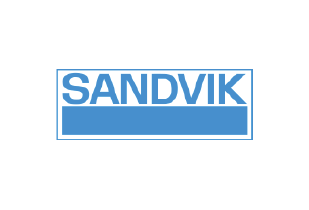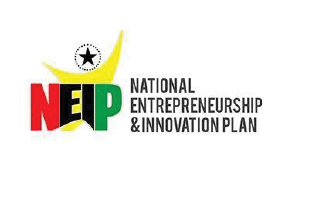Holaaa! It’s yet another exciting episode and today, I’m interviewing The Fabulous Golda Addo. Her strength and character are just so admirable. Ladies and gentlemen, let’s dig in!
Ama Duncan (AD): Hi Golda. I appreciate you for making time for this conversation.
Golda Addo (GA): It’s a pleasure.
AD: I really have to commend your strength and boldness. The way you put yourself out there to defend a worthy course is inspiring. Have you always been this bold even as a child? Tell us about your upbringing and the key milestones that led to being this unapologetically true to yourself.
GA: From what my parents tell me, it seems I’ve always been quite outspoken. When they talk about me as a child, they say I wasn’t the child who liked to be addressed as a kid but rather as one of the adults (Haha). I always wanted to be engaged on that level. But I must give all the credit to my parents for how they raised us. My parents come from large families and back then, it meant education was not always a priority. It was about what can be done for who it can be done and the children had to fend for themselves mostly. But somehow, they managed to rise through all that and imbibed in us a very sharp sense of how to navigate life; how to stand up, be seen and speak up.
One thing my father taught us (I suspect because we were three girls before he had a boy he felt he needed to teach us certain things that we’ll need to learn to survive) ‘always think through carefully and when you decide on it stand by it. If it’s wrong, you have to acknowledge that its wrong but always stand by what you want to do or have done’ And in order to do this, one needs to be extremely bold.
I attended Wesley Girls High School but interestingly, I highly avoided any leadership roles. Even when my name came up for some of these roles, I opted to push in somebody else. I’m convinced that for the longest time, I have always believed in focus. And I’ve always believed one can contribute to leadership from the corner, where those in leadership would need assistance from others. Growing up through school, I always viewed life from a different perspective, and only a few people know that I’m a high- functioning autistic person and I suspect my father is similar because growing up and coming to understand why he’s so different and why we understand each other, I suspect that is how I inherited it. So I can say I have always been this way.
AD: That’s amazing. “Leading from the corner”, that’s definitely what I see you doing. When I think of women working in the background to help others break the proverbial glass ceiling, you come to mind. Thank you! Tell us about your advocacy work particularly with regards to women.
GA: Well, it’s been very adventurous and packed with activities. After University, it did not make sense to jump into mainstream work or office because their expectations were things I could absolutely not live with. Then, I was interning as a Paralegal in one of the law chambers so it was a matter of working your way up to become a lawyer. But it was very difficult for me to feel at home in those places mostly because of some of their discriminatory attitudes towards females. For a young female it was a double burden. And for a young black female, that was a triple burden. I realized I was very good at engaging and breaking a lot of the socialized constructs about females. I was able to raise points about the greater benefits of having women. If we’re talking about environmental issues, taking care of people, even politics and spreading the message, women are very critical and are at the heart of everything. So I began pushing the message that when you have females in more positions, there’s a higher return on everything, not just on your investment.
Then, I knew I had to make the claim consistently. Every time I ended up in a room, there were very stereotypical approaches to things. And when you break them, you’re threatened. They don’t even realize they’re threatening you. But looking at how our grandmothers, mothers and aunties raised the men, there were more successful ways in dealing with men than what the books would tell us to do like fight for your rights. I realized that when you want results, context matters, perspective matters, and there are very individualized situations for every situation you’re pushing. I began improving the ways in which I advocated. By learning how to reach every man that was in the way or part of the problem. By reaching them in a way that if their mother, wife, sister or daughter reached out to them, they would not be violent about it but be forced to listen and improve. And that led to me going into a lot of spaces, joining so many organizations and lots of campaigns and projects. It’s been about thirteen years of doing that. And every year I learn more and I get better at it and I understand better.
AD: I’m curious: do you have any ambitions of politics yourself? What should we expect from you within the next couple of years?
GA: I never used to until about 2016 when I decided that, from Theodore Roosevelt’s quote about the man in the arena, it’s the man who gets into the arena and battles and fights who at the end of the day can be called someone who really stood up for what he wanted, not the people or the audience. But there’s also the woman in the arena. I have spent so much time behind the scenes supporting policies, people in parliamentary offices, in presidential spaces, state entities and advising people who’re going into politics and most of them will listen to the point where they feel it’s no more useful. Because for them it’s about what’s useful not the logic or data of it. And it always ends up poorly. So after years of doing that, I realized I need to stop trying to help the men to get in there because I’m also capable. I decided in 2016 to see when will be the right time for me to start doing this. In 2024, I will stand for the presidential candidacy. So yes, I have political intentions.
AD: I like what you said “I am also capable”. I admire that and I wish you the very best. Tell us about Spun Gold Consultancy please.
GA: I set up Spun Gold to provide services in communication, education and result-based managerial approaches. I set it up as a sole proprietorship and it allowed me to run it much better than running it as a huge organization or large partnership. What I’ve been doing with it is to carry out a lot on my consultancy work because I provide a lot of result-based management advice, research and communications support to quite a number of small projects and entities. Because of my multi-sectoral experience, one thing usually leads to the other.
And more recently during the COVID-19 pandemic, when the situation about children having to stay at home became a nationwide problem my experience from homeschooling my boys became helpful. I decided to begin training tutors who can be matched to families to help the children at least keep up with lessons and do better even outside of their mainstream school. I’ve been using the consultancy for quite a number of these things for the past eight years.
AD: Fantastic! I used to think homeschooling was something that was not very much relatable to this part of the world but I see things are changing. Please educate us on it.
GA: It is a big deal but it’s still small. There are two factors that come into play: the apprehension from a lot of parents about whether or not it is legal and what it means for the future of their children when they do begin. Also generally, most Ghanaians feel that education must definitely be in a school building instead of looking at it as that broad space of attaining knowledge and skill sets. Our constitution gives parents the right to select distance learning or digital learning for their children. The most important thing a parent must do is to ensure that your child is learning. If they are not physically able to attend the school or you don’t have the means to sign them up for school because you don’t have money, you must ensure that they are learning. That is why certain children end up being put in apprenticeships in the rural areas. That is why the country also has National Adult Education facilities as well because some people don’t have the opportunity to go to school until they are adults and can afford to. And some people have the assumption that homeschooling is not structured but it is even more structured than the mainstream school. It’s basically an entire educational journey that is being run in a place other than a school structure.
AD: But for most busy parents like you, how are you able to make time to homeschool your kids?
GA: I hire people to do it. What you need to do is have a plan and structure that the tutor(s) must follow. You can be fortunate enough to have a tutor to help you build the plan probably because you may not know how. But I always tell people, even if you don’t have a plan, you should have a destination in mind. Is it because you want the child to finish faster or attain an extra skill set, etc? So you need to use that to figure out a plan.
Children may be homeschooled for various reasons but if your child is okay with mainstream school and you willingly want to do it, you need to ask yourself at which point in time would they write the next standardized official exam. Because the difference between Ghana and other countries that practice homeschooling is that most countries have the opportunity to have standardized exams at any point in time in the year. Here, the most reliable ones are mostly run by the Cambridge, American or other foreign systems. Therefore a lot of the parents who come to us for home schooling are either close to writing WASSCE or the BECE or at a point where the child can write any of the British exams as private candidates. These standardized tests are needed along the journey. And these standardized tests allow you to return the child to mainstream school if you feel like it along the line because they have a reference point of performance.
One advantage about this is that children are able to do three or four years ahead of their peers from homeschooling. For the socialization bit, they are not left out. You can always sign your kids up for vacation classes or fairs that they can join a school to go with or other fun and interactive vacation activities or spending time with other family members. You have to be intentional about socialization. Another upside to homeschooling is that it saves the children from bullying and the influence of peer pressure too.
AD: Insightful! Thank you for sharing this. By the way, I‘ve been itching to ask you this, what do you do to ‘happy yourself’?
GA: I do a lot of things throughout the day to make myself happy. I take random breaks. I have these color books and I look for the most complicated ones and take five minutes to happily color them. It makes me happy and really helps me to de-stress. I love going to the cinema as well but COVID-19 disturbed me. I love reading too and watching documentaries of rare things or events. And I love going to the beach. Just walking by the shores and also driving out very early in the morning, when it’s serene and cold and the world is calm.
AD: Wow colouring sounds like fun! Please complete the following with a short phrase or sentence:
If I could advise my younger self in one short sentence, I would say “be more patient”.
I am fabulous because “I am fabulous”.
One book that has greatly helped me in business is “I do more reports from foreign donors. They are my biggest source of business insight”.
AD: I like that! Where can we get access to such reports?
GA: The good thing is that most of these people put it on their websites. So you can go to the World bank website, the IMF website, OECD and even Forbes. As well as the foreign media houses and the UN spaces especially!
AD: Amazing. Golda, how do we find you?
GA: I’m always available on Facebook or you can send me an email at goldaaddo@gmail.com or g.addo@spangold.org .
AD: With regards to homeschooling, does Spun Gold have any upcoming events that we should know of?
GA: We do major ones biannually but also people do reach out regularly. And I’ve realized instead of stockpiling, it’s better to engage people with their issues as they come up. So anybody with questions can just hit us up.
AD: Thank you so much Golda. I really appreciate it and thank you for using Fab Hub Ashanti and describing it as “an emotionally intelligent space”. (Hehe) I wish you the very best in your political aspirations as well and I pray all goes well for you.
GA: Haha. I’m glad. Thank you so much.
Well, tell me; did you enjoy this conversation as much as I did? Tell me what you gleaned from it in the comment please. For me, the homeschooling bit especially has been an eyeopener. And of course, if you have any questions for Golda, please reach out to her. Until next time stay fabulous!
Ama xx
About Golda Addo
Golda Addo is a Trainer, Researcher, and Strategist for businesses/projects looking to develop or improve in the areas of Monitoring & Evaluation, Communications, Results-based Management, Policies and Structures. She has spent 13 years consulting for various foreign donors, government top offices, CSOs, private, local and international projects across Benin, Nigeria, Liberia, Zimbabwe, Tanzania, Tunisia, Kenya, Cote d’Ivoire, Senegal, Ghana, etc as well as worked with top government offices in the United Kingdom in all the above areas (she is an International Leaders Programme alumni and also a member of the Climate Change Committee on the same Programme – all of which are hosted by the Foreign, Commonwealth and Development Office (FCDO) of the UK and work on global issues actively). She was also the chair of Gender4Results (an AfDB-hosted platform for African development) from 2013 to 2016 where she worked with over 100 women from all over Africa to determine results-based approaches to improving GESI on the continent. She has sustained transformational education, support, and governance and leadership training since then for many females and communities across Ghana and the West African sub-region. She is heavily invested in the development of communities and disenfranchised communities and runs Spun Gold Consultancy as well as SHE Aid (https://sheaidgh.org/) to solve most of the challenges in these areas. She works with many Africans and Ghanaians across the continent and the country through data-centred and results-focused strategies and approaches.













